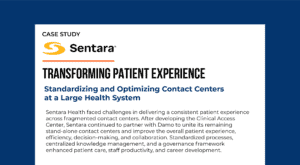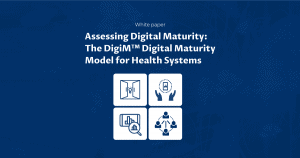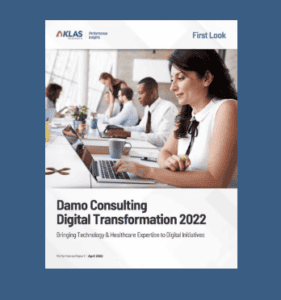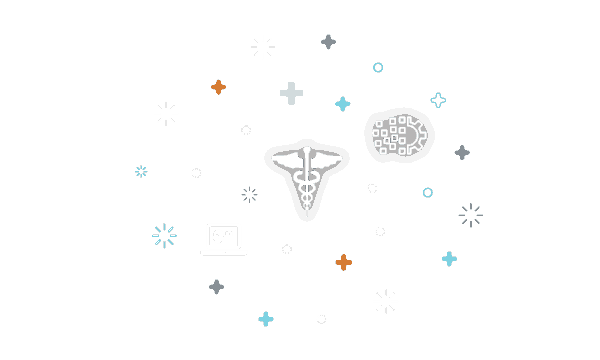Designing Trusted AI-First Healthcare with a Focus on Innovation and Equity

In a recent episode of The Big Unlock podcast, Aneesh Chopra, Chief Strategy Officer at Arcadia shares a bold and comprehensive vision for transforming healthcare through data, technology, and public-private collaboration. Hosted by Rohit Mahajan, Managing Partner and CEO of Damo Consulting and BigRio, the conversation spans a wide range of topics, from the early days of “meaningful use” to today’s AI-enabled, value-based care ecosystem.
Listen to the full conversation
From “Meaningful Use” to Meaningful Impact
Aneesh Chopra reflects on the origins of the “meaningful use” program, which was designed to drive adoption of electronic health records (EHRs) through the HITECH Act. While the program succeeded in digitizing healthcare, Mr. Chopra acknowledges it fell short of transforming care delivery. Much of the technology was optimized for fee-for-service billing workflows rather than for improving clinical outcomes.
Now, Mr. Chopra sees a chance to realign health IT with the goals of value-based care. He emphasizes the need to define “meaningful use” in terms of patient outcomes, longitudinal care, and proactive health management. The renewed push, especially through the latest CMS-ONC RFI, presents an opportunity to finish what was started over a decade ago but with a clearer vision for outcomes-focused, AI-supported workflows. He urges the healthcare community to participate in shaping the future of health IT through these requests for information. “We want the technology to operate in a way that supports value-based care networks, helps consumers access their information, and enables real-time clinical decision-making,” he explains. Mr. Chopra emphasizes the need to move beyond back-office digitization to technology that enables smarter care delivery.
Introducing the “Healthcare Information Fiduciary”
One of the most innovative concepts Mr. Chopra introduces in the podcast is the idea of a “healthcare information fiduciary.” Drawing inspiration from financial fiduciary rules, this model proposes that applications and platforms handling patient data must act solely in the patient’s best interest.
In practice, this means creating a trusted marketplace of AI-enabled apps that help patients aggregate their medical records and receive personalized, unbiased recommendations. Such platforms would operate independently of the financial incentives of payers, providers, or pharmaceutical companies. “If you trust me with my information in a complex domain,” Mr. Chopra explains, “you must act in my best interest, and not based on how you get paid.” He states that this idea is already gaining traction through a voluntary code of conduct for consumer health apps, developed to encourage transparency around data use, including for de-identified data, an area traditionally excluded from HIPAA disclosures. This move toward greater openness and accountability is a step in the direction of building a full-fledged fiduciary model for healthcare data.
AI and Intelligent Workflows: Real-World Success Stories
Mr. Chopra shares compelling examples of how AI-driven workflows are already delivering tangible results. In one case, an academic medical center improved its Medicare Advantage star ratings by using conversational AI to reach out to patients, close care gaps, and ensure adherence to preventive care protocols. The campaign led to a significant quality improvement and unlocked over $6 million in incentive payments. These AI-powered agents contacted patients on behalf of their physicians, reminding them to complete necessary screenings or check-ups. By automating outreach at scale, the organization could more effectively engage patients—many of whom might otherwise fall through the cracks.
In another example, a health system leveraged AI-powered decision support tools to align with evidence-based guidelines. These tools acted as co-pilots for clinicians, reducing cognitive load and ensuring that treatment plans adhered to best practices. Though still in the pilot stage, this approach shows promise in enhancing care consistency and quality. The goal is not to replace clinical judgment but to support it with relevant, real-time data. AI tools can identify patients who match specific evidence-based criteria, flag care gaps, and help clinicians act quickly to address them. This type of augmentation could prove critical in improving care outcomes while reducing provider burnout.
Real-Time Data Through FHIR APIs
Interoperability has long been a challenge in healthcare, but Mr. Chopra is optimistic about recent progress. He points to the success of CMS’s FHIR API implementation, which is enabling near real-time access to claims data in programs like ACO REACH. This has transformed the utility of administrative data from retrospective analysis to proactive care management.
For example, advanced primary care providers working with high-risk populations are now able to detect changes in patient status within days of a clinical encounter, allowing them to act more swiftly. This real-time feedback loop represents a critical step toward building a learning health system that is both responsive and adaptive. Mr. Chopra explains that this shift reduces the lag between when a healthcare event occurs and when it can be addressed by a care team. Instead of waiting weeks or months for claims data to be analyzed, providers can now access that information in closer to real time, enabling more immediate interventions and better patient outcomes.
The Role of Public-Private Collaboration
Throughout the episode, Mr. Chopra emphasizes the importance of collaboration between the public and private sectors. His own career reflects a passion for creating handshakes and handoffs where policy creates the framework, and the private sector drives innovation.
He cites the CARIN Alliance, a bipartisan initiative he co-founded, as an example of progress in creating a voluntary code of conduct for consumer health apps. This code aims to increase transparency around data use, including de-identified data, and build consumer trust. According to Chopra, the combination of data sharing rights and an AI code of conduct will catalyze a new generation of responsible, patient-centered tools.
According to Mr. Chopra, the combination of data sharing rights and an AI code of conduct will catalyze a new generation of responsible, patient-centered tools. He also credits the efforts of bipartisan policymakers and industry leaders in sustaining progress over time. “We’ve seen administrations change, but the momentum toward smarter health data use continues,” he says. This consistency is essential for driving lasting innovation and achieving meaningful outcomes at scale.
From Vision to Action: Enabling the Future of Healthcare
Mr. Chopra closes the conversation with a rallying cry to the healthcare innovation community. He urges early adopters, across startups, health systems, and technology vendors, to raise their hands and help test, validate, and scale the tools needed to support a more equitable and efficient healthcare system. “If you see the future and you want to have a hand in bringing it to life,” he says, “we would love to tap into that talent.”
He emphasizes that meaningful transformation will require experimentation, feedback, and iteration. The public sector is opening the door with policies and programs but it is up to the private sector to walk through it and deliver results. Early adopters will play a vital role in shaping the next chapter of healthcare innovation.
This episode of The Big Unlock is more than a retrospective on health IT policy, it is a forward-looking manifesto for how data, AI, and innovation can reshape American healthcare. Aneesh Chopra’s insights serve as a roadmap for leaders seeking to bridge the gap between technological capability and real-world outcomes. Whether you’re a policymaker, provider, technologist, or entrepreneur, there’s a clear message – the future of healthcare lies in building trusted, intelligent, and patient-first systems and the time to act is now. By learning from past efforts and applying the best of today’s technologies, healthcare stakeholders have an opportunity to co-create a future where high-quality care is equitable, accessible, and guided by data we can trust.
A Pediatric-Centric Approach to AI
Pediatric healthcare comes with its own unique challenges—fewer available data points, smaller population sizes, and higher sensitivities around communication and consent. This makes the responsible use of AI even more critical.
Dr. Morse noted that solutions must be designed with children and families in mind, not simply adapted from adult care settings. Whether deploying ambient tools, summarizing clinical notes, or streamlining administrative workflows, every use case must prioritize trust, safety, and patient experience.





